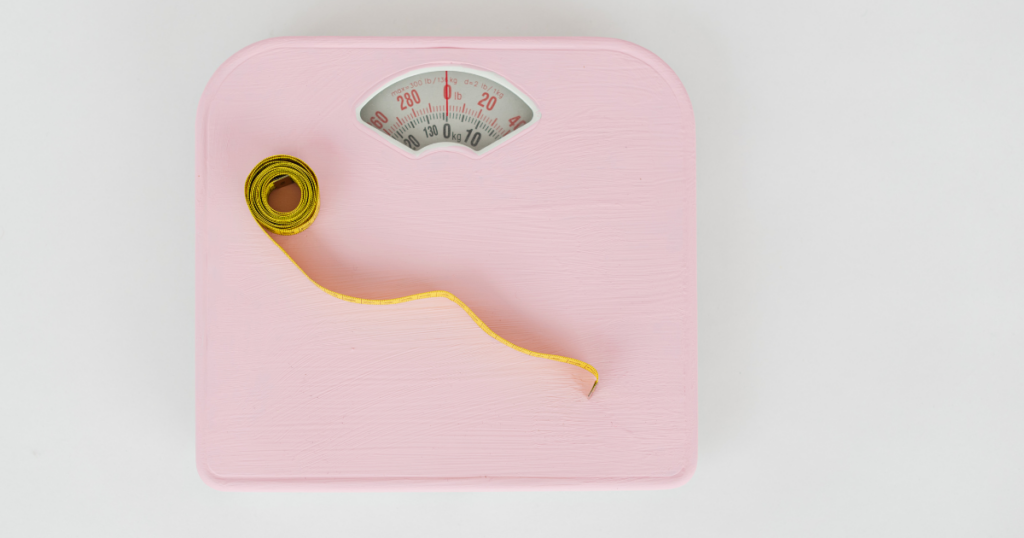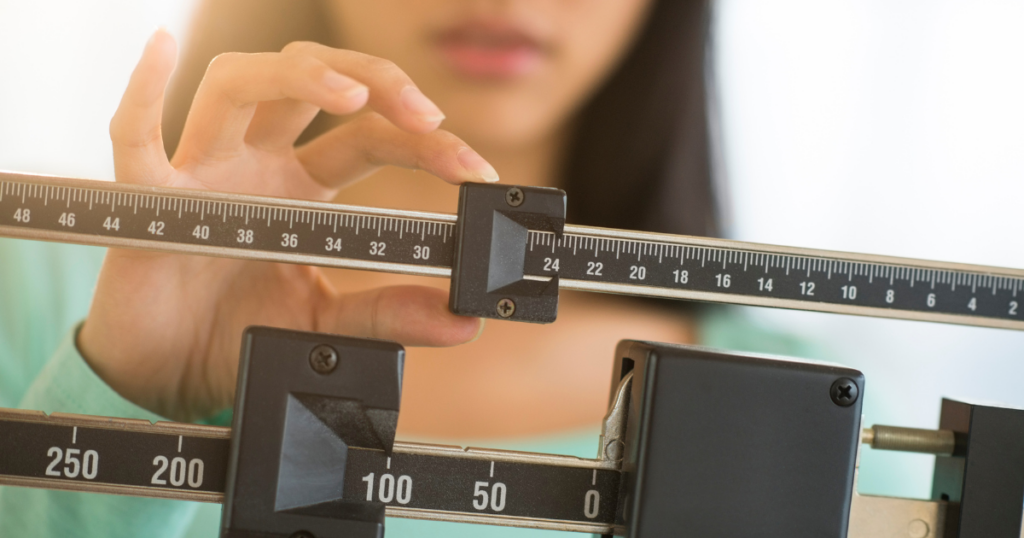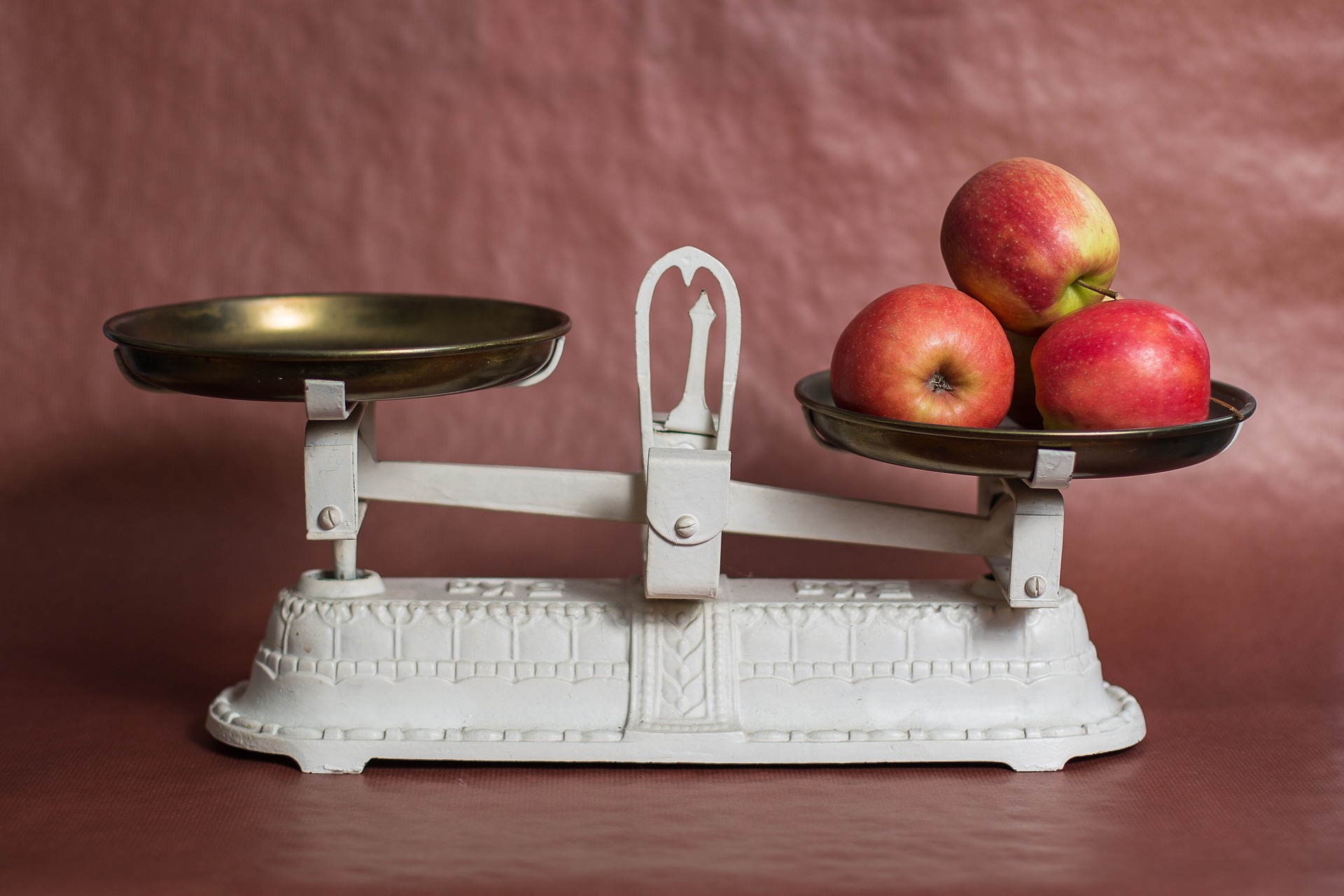Do you find yourself asking, “How often should I weigh myself?”
Ah, the dreaded weight scale. It can feel like a friend some days but an enemy most.
The one little device that is able to induce joy or elicit dread in a matter of seconds. The bathroom staple you both hate and can’t live without.
As a team of non-diet dietitians, we often get asked about getting on the scale, including if it’s necessary to weigh yourself weekly or even daily.
In today’s article, I will dive deeper into this topic and give you a dietitian’s perspective on how often you should step on a bathroom scale, if at all.
If you are on the fence about intuitive eating and wondering how it fits in with your current goals, check out our 45-minute masterclass: Can I do intuitive eating if I want to lose weight?
How Often Should I Weigh Myself?
When you know that digital reading has the power to plummet your mood, why do you choose to step on the scale?
Everyone’s reasoning for weighing themselves daily, or even regularly, is different and may be influenced by body image, weight concerns, or even desire for a sense of control.
All of these reasons are understandable; you have full body autonomy to care for your body any way you wish.
However, If you do find yourself on an emotional rollercoaster every time you see your weight, it may be helpful to evaluate your relationship with the scale.
Do you have a fear of weight gain while on your intuitive eating journey? If yes, read our blog on the fear of gaining weight with intuitive eating next!
Tips to Evaluate Your Relationship With the Scale

Discuss with yourself these questions and reflect on why you’re asking the question, “How often do I weigh myself?” in the first place.
1. Consider your emotional response
Ask yourself what emotions regularly arise after stepping on the scale.
- How do you feel after seeing your weight?
- If you have an emotional response to seeing your weight, how long does this last, and how does it affect the rest of your day?
If negative emotions do arise, consider taking a step back. Examine why you are regularly engaging in a behavior that has the ability to lower your mood consistently.
2. Evaluate your desire for a “check-in”
For some people, the urge to weigh themselves comes from a desire to “check in” with their bodies and cultivate a sense of understanding. This is a completely valid desire, and making space for body connection can be beneficial in fostering a positive body image.
However, if you do find yourself struggling with negative thoughts and feelings after stepping on the scale, consider some other ways you can “check-in” with your body.
These include:
- Examine your energy levels and sleep hygiene
- Evaluate your stress levels
- Take time to stretch or incorporate gentle movement into your day
- Practice breathing exercises
Remember that there are other ways to check in with your body and mind outside of weighing yourself.
3. Notice your behaviors after weighing yourself
Regardless of your weight, and if you have gained or lost, your body needs nourishment. Consider the following questions:
- Are your eating patterns or behaviors different after weighing yourself?
- Do you find yourself refusing or restricting food because of weight changes?
- Have you canceled plans involving food after experiencing weight gain?
If you notice restrictive behaviors arising when you regularly weigh yourself, it may be time to consider if this is a behavior that is helpful or hurtful in the long run. You are worthy and deserving of caring for yourself. No matter what number the scale decides to show that day, you need (and deserve!) food.
How Often Should I Weigh Myself: The Takeaway

Weight is considered one marker of health status; it is not THE deciding factor of whether an individual is healthy or unhealthy. At the end of the day, the number on the scale is not able to provide any significant data on your overall health or well-being.
If you want to learn more about cultivating a better body image, check out our Intuitive Eating Program to work 1:1 with a non-diet Registered Dietitian.
If you aren’t quite ready to make the leap into 1:1 counseling, take a look at our Nourished Body Basics Course. This course gives a complete rundown on getting started with healing your relationship with food and your body.
Take a look at this review of our one-of-a-kind course:
“I truly feel like I have gained a healthier mindset. I have gained a different perspective on the way I look at food. I have a better understanding of what health is and how to balance my plate. I have more awareness of hunger/fullness cues and listen to what my body is telling me more. I don’t feel the same guilt/shame after eating certain foods. I am definitely kinder to myself.”
This could be you, too! Check out our course information page to learn more and secure your spot today.
Written by Emily Adkisson, RDN

LEAVE A COMMENT
Comments